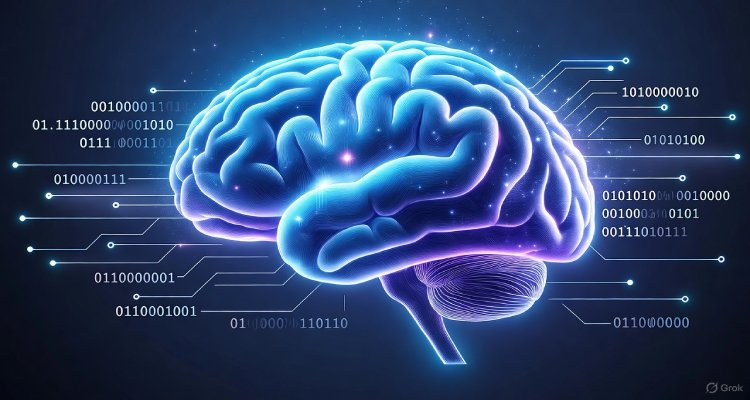The Digital Soul: What Happens to Consciousness Online

As our lives move deeper into the digital realm, scientists and philosophers are asking: can consciousness exist online—and what does it mean for the human soul?
Introduction: When Consciousness Meets the Cloud
In a world where memories live on in data and personalities echo through social media, the line between human consciousness and digital existence is blurring. The concept of a “digital soul” — once confined to science fiction — is now entering the realm of scientific inquiry and ethical debate. As artificial intelligence evolves and human identity migrates to virtual spaces, one question looms large: what happens to consciousness when it goes online?
Context & Background: From Digital Footprints to Digital Spirits
The idea of a digital afterlife isn’t new. Social media platforms like Facebook and X (formerly Twitter) already preserve the digital remains of users who’ve passed away. Memorialized accounts become virtual tombstones, keeping the echoes of a person’s thoughts, photos, and words alive indefinitely.
But today’s conversation stretches far beyond remembrance. Tech companies and neuroscientists are exploring mind uploading, digital consciousness, and AI resurrection—concepts that merge human cognition with code. Projects such as Elon Musk’s Neuralink and research at MIT and Oxford’s Future of Humanity Institute are probing whether human consciousness can be replicated or even transferred to machines.
These developments raise profound questions: Can a copy of the mind truly be the person? Or is it merely a ghost in the digital machine?
Main Developments: Where Science Meets Spirituality
Advancements in neurotechnology and AI modeling are inching us closer to simulating aspects of consciousness. Machine learning systems can now mimic speech patterns, decision-making, and even emotional responses. Large language models—like those that power virtual assistants—are capable of generating text so humanlike that they can convincingly imitate personalities.
In 2024, several research teams began exploring neural mapping, aiming to translate brain signals into digital representations of thought. Combined with breakthroughs in brain-computer interfaces (BCIs), these experiments could one day allow a digital reconstruction of a person’s identity — a theoretical step toward “uploading” consciousness.
However, scientists caution that mimicking behavior is not the same as replicating awareness. Consciousness, many argue, is an emergent property of biological life—something that cannot be copied by algorithms, no matter how advanced.
Expert Insight: A Clash of Minds
“Consciousness is not data—it’s experience,” says Dr. Ananya Rao, a cognitive neuroscientist at the Indian Institute of Science. “Even if we could map every neuron, the subjective essence of being—our emotions, our sense of self—cannot be digitized.”
Philosophers echo her concerns. According to Dr. Thomas Metzinger, author of The Ego Tunnel, uploading the mind would create not immortality, but imitation. “What you’d get is a replica, not continuity of consciousness,” he explains. “The original you would still die.”
Yet, technologists like Ray Kurzweil, Google’s Director of Engineering and a pioneer of futurism, remain optimistic. Kurzweil predicts that by the 2040s, humans will merge with digital intelligence to achieve a form of “digital immortality.” He envisions a world where consciousness could persist as a hybrid—part biological, part artificial.
Public Reaction: Between Awe and Unease
Public opinion on digital consciousness remains divided. For some, it’s a thrilling prospect — the ultimate escape from mortality. For others, it’s a terrifying loss of humanity.
Online forums and think pieces reveal growing discomfort with the notion of AI avatars speaking for the dead or digital twins making decisions autonomously. As deepfake technology grows more sophisticated, the boundaries between real and replicated identity continue to erode.
“Who owns our digital selves after we’re gone?” asks Leila Turner, a tech ethicist and founder of The Human Code Project. “If an AI version of me can post, think, or even argue online—does it have rights? Or does someone else control my consciousness?”
Impact & Implications: The Ethics of Immortality
The rise of digital consciousness forces a reckoning with ethics, privacy, and the meaning of existence. Governments and policymakers are beginning to explore digital personhood—a legal framework for AI entities and potential digital continuations of humans.
If consciousness could be uploaded, who would own that data? Could it be deleted, hacked, or exploited? The implications stretch into religion, law, and philosophy. Many faith traditions emphasize the soul as immaterial and divine—an idea at odds with technological replication.
Meanwhile, tech companies are investing billions into AI companionship, griefbots, and memory simulations. These applications may help preserve legacies but risk reducing human essence to algorithms and metadata.
Conclusion: The Search for a Soul in the Machine
The digital soul remains a metaphor—at least for now. As science advances and ethics lag behind, humanity stands at a crossroads between innovation and identity. Whether consciousness can truly transcend biology remains uncertain, but one thing is clear: our digital lives are already reshaping what it means to be human.
In the quest for immortality, perhaps the greater challenge lies not in preserving consciousness online—but in understanding what consciousness truly is.
Disclaimer: This article is a journalistic exploration of scientific and philosophical ideas about digital consciousness. It does not claim or endorse the existence of digital immortality or consciousness transfer.










